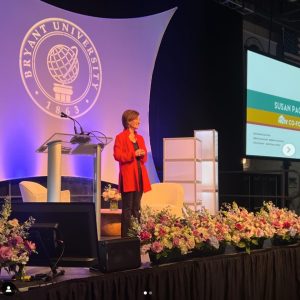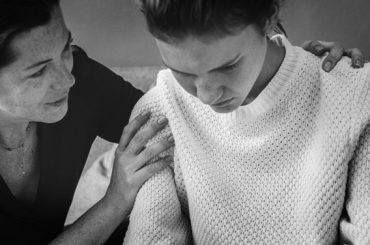When I had about 4 months sober, I wandered into an outpatient treatment center because a young woman I met at a meeting asked me to go with her. At the time, I didn’t think about insurance or referrals or that I probably needed to be a patient at this treatment center, so I went with her on a Tuesday evening to “group.”
Now, I’d been to inpatient treatment enough times to know that “group” meant uncomfortably sitting in a circle of chairs with strangers who came together under a common love or bend towards substances and self-destruction. I said “yes” to my new friend because her eyes were wide, her voice was pleading, and I knew her fear: Sobriety early on can be intimidating and scary.
My prediction was correct: it was an uncomfortable circle of chairs.
We sat down and immediately the group leader, Shelly, a counselor who I would come to know intimately, asked this:
“Who are you?”
I explained the situation, that I’d met my friend at a meeting and she asked me to come. Immediately Shelly asked how much time I had in recovery and I told her proudly, “4 months.” I heard audible gasps. 4 months felt like an impossible eternity to some. It did to me, too.
Shelly was quiet for a moment. I could feel her looking into my eyes, searching them.
Then she said:
“We are looking for mentors. People with more than 90 days of sobriety who are willing to show up for other women here. Will you be a mentor?”
At that time, the program was new and the requirements and policies were different than they likely are today. I didn’t sign my name on a dotted line, but I nodded my head.
Yes, I’ll be a mentor.
No, I don’t feel ready.
Really, you really think I have something to offer?—these thoughts plagued my mind.
And yet, this is the moment when my purpose was born in recovery.
When I said yes.
Purpose is Proven
The Substance Abuse and Mental Health Services Administration (SAMHSA) recognizes purpose as one of the core four elements of recovery (the others being health, home, and community). For those of us in or seeking recovery, purpose can be the difference between life or death.
For me in early sobriety, I needed something outside of myself to focus on. I needed a why that wasn’t me. The same is true for me today.
In the realm of addiction recovery, having a sense of purpose is significant. It enables us to face feelings of emptiness and hopelessness head-on. When we can discover meaning and new passions, we build a solid foundation for enduring sobriety. Purpose can look different for different people, too. Maybe it’s volunteering at a meeting, maybe it’s being a sponsor, maybe it’s writing or speaking or going back to school, or starting a family.
It’s okay to need more for our lives than sobriety for its own sake. If we are sober or in recovery for the sole purpose of abstaining from drugs and alcohol or mitigating harm, what will keep us motivated? What will keep us grounded in this path that has its mountains, true, yet also brings with it challenging valleys and sometimes unforgiving summits?
What We Can Learn About Purpose
These days, I learn most from women in recovery who have been there and who I look up
Susan recently posted about her recent speaking engagement on Instagram and said:
My friends sometimes ask why I still do this–get on airplanes and speak to large and small groups […].
Here are three reasons, fresh from speaking at the Women’s Summit Event at @BryantUniversity:
Reason One: After the event, a high school student reached out to me on LinkedIn, promised me she would stay in touch, and follow her dreams.
Reason Two: A woman mid-career told me that she’s four years sober. I speak openly about being sober when I talk about emotional fitness, as recovery is one of its gold-star practices. How incredibly gratifying to hear that!
Reason Three: A flash of someone running up as I was leaving the room and entrusting me with a magazine she is starting up. “You spoke of being brave. This is me being brave! […]”
To me, it’s a privilege to show up for women coming after me. We embody for them ways to live their fullest, happiest, most artfully accomplished lives.
Susan’s inspiring post stirred in me the notion that purpose can not only drive us but also help us to define for ourselves what our reasons are for showing up and being present for others.
Don’t Give Up
The research today shows that not only does living with purpose on purpose help us feel good, but it is part of what makes up a thriving life.
Without it, we may feel like this: what’s the point?
I’ve been there and if you are here right now, questioning or wondering why you are even here at all, I want to encourage you with these words (they may sound familiar):
Don’t give up before the miracle – or reason – happens.







